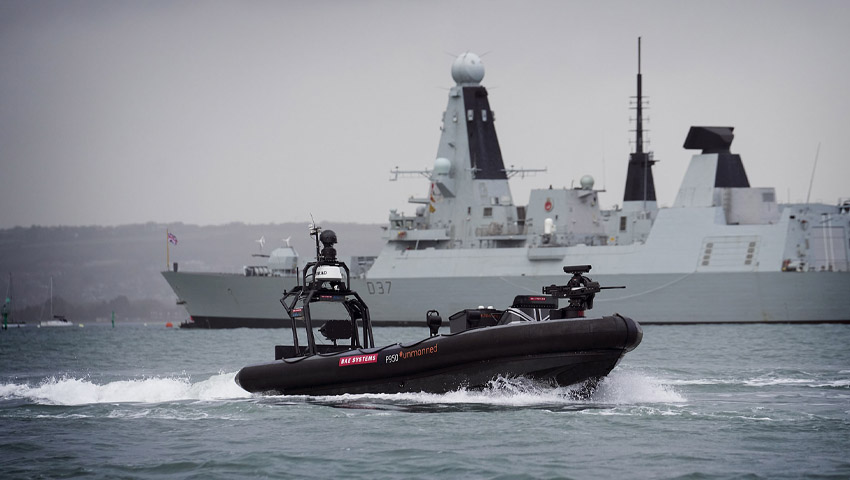BAE Systems has announced it has completed trials on a “first of its kind” autonomous boat that the company said will “allow navies to go beyond the limits of human endurance with unmanned vessels that can travel further, for longer and to more inhospitable environments”.
The autonomous Pacific 950 rigid inflatable boat (RIB) demonstrator has been used to "develop and prove innovative technologies which have the potential to make naval missions faster, easier and safer, taking the relationship between human and machine to new territories".
The P950 was developed alongside fellow industry experts from L3Harris and MSI Defence Systems, and comes equipped with automated navigational decision-making technologies, which frees up operators to focus on mission-critical information from a distance.
The technology has been designed to be retrofitted to existing RIBs, like the BAE Systems' Pacific 24, which the British Royal Navy currently has in service, allowing the enhanced capability of existing warships.
“This technology represents a huge step forward in the interaction between human and machine, combining sophisticated autonomous technology with human capabilities to overcome many of the challenges faced in difficult conditions at sea," Mike Woods, chief technologist for BAE Systems' maritime services business said.
"The boat keeps sailors out of harm’s way whilst allowing them to respond to the increasingly varied, often unpredictable scenarios they face every day, and aids faster decision making in complex and ambiguous situations.”
The vessel has the capacity to operate for up to 10 days at 'patrol speed' or 300 nautical miles in pursuit mode, with max speeds of 45 knots, while either being remote controlled or on a semi-autonomous mission.
BAE Systems said the vessel has potential applications across a range of missions, including anti-piracy operations, border control, persistent intelligence gathering, maritime security and force protection, with the use of autonomous vessels in high-risk areas would allow operations to be conducted without endangering sailors.

 Login
Login







